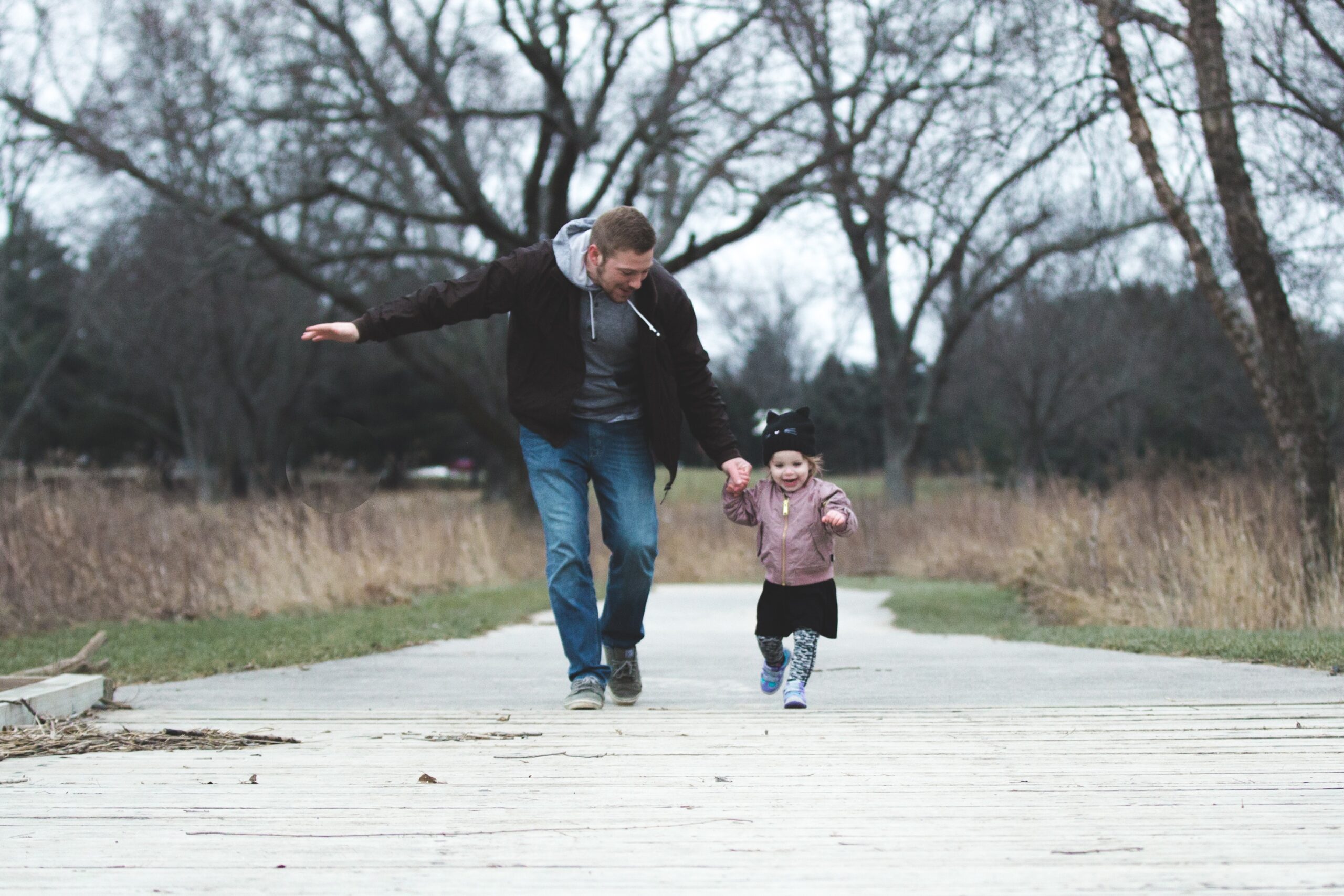
ReParenting After Divorce
Our Happy Divorce Wednesday, September 2, 2020
Parenting is hard, but life throws so much more at you when you’re a single parent. It’s hard to find creative solutions and figure out what to do with your kid. That’s why this week Ben and Kate Anthony were joined by Sheva Ganz to talk about reparenting after divorce. Sheva’s goal is to help single parents find creative solutions to problems surrounding divorce and is the founder of A reCreative Life, a therapeutic practice built around helping her clients.
It’s easy to feel like your home is broken after a divorce. The process of divorce can sometimes take years, and to say it can be emotionally draining would be an understatement. But when everything settles, and the world keeps on going, you have to take a step back and really see what’s happened. So how do you manage all of that and put your kids first?
– Reparenting is two-fold. Not only are you reparenting yourself, but you’re also reparenting your child. There is brokenness to your situation, but it doesn’t have to stay that way. Everything you go through needs to be addressed, including the shift in your relationship with your child. Reparenting ourselves is looking for and understanding our needs, much like reparenting your child is looking for and understanding their needs. So make sure you’re sitting back and listening to yourself and your child.
– Acknowledge your mistakes. You need to take into account what in parenting didn’t work for you both before and after your divorce. You’re dealing with so much at one time when you’re a single parent, and it’s not something that comes naturally to people. Try your best to be present, take it one day at a time, and learn through experience. And also, own up to your mistakes and apologize to your child if you really messed up. They’ll respect you more for it.
– Learning to reparent is not just one parent’s job. We have a bad habit of demonizing both sides of the divorce. But when we take a step back and realize that you are two separate people sharing a child, we realize it’s on both parents to figure out their parenting style and adjust it for their child. So even if one parent has physical custody, the other needs to work things out on their own too.
– Seek out tools to help you. There is a world of tools and resources that can help. From books, podcasts, coaching services, and even support groups, you’re not alone in this. Finding tools that help will make you a better parent and co-parent, and by extension ease the situation.
To watch the full livestream, click here. Don’t forget to follow us on all of our social channels: Facebook, Instagram, Twitter, and LinkedIn. If you’d like to join our private Facebook community, please visit the Our Happy Divorce Facebook Group.
To learn more about Kate Anthony and The Divorce Survival Guide, visit her on Facebook and Instagram or visit KateAnthony.com. Listen to her podcast at: kateanthony.com/podcast-1
Check out Sheva and A reCreative life at https://www.arecreativelife.com/. You can also visit her on Facebook and Instagram.
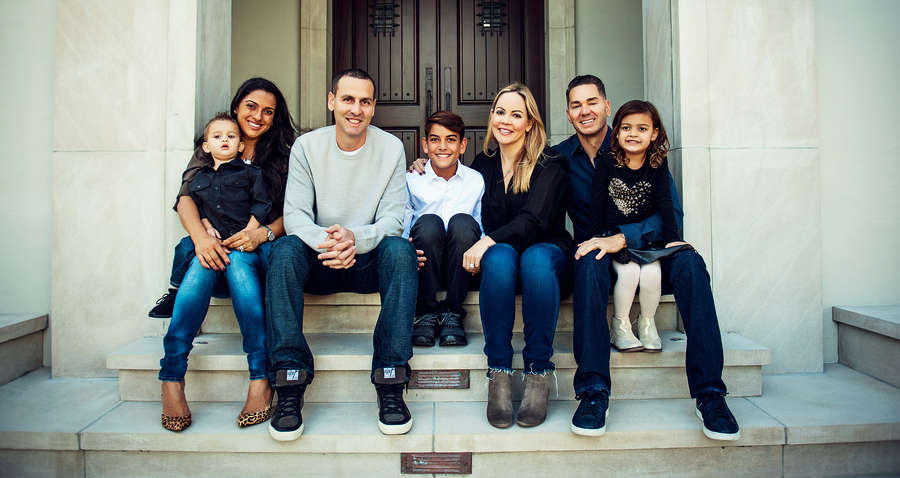
5 Books to Walk You Through Your Divorce
Our Happy Divorce Tuesday, August 25, 2020
Did you know? Reading increases your emotional intelligence. Taking in resources about divorce can help you grow as a person and keep your divorce amicable. Here are some of our favorite books on divorce to help you through the process:
Our Happy Divorce
Of course, we have to plug our own book. The reason we wrote it is so you could learn from the mistakes and changes we made. We refused to participate in the standard litigious legal divorce process, and came together to create a new strategy and worked to confront our hurt feelings and egos head-on. We put our son, Asher, first and came out stronger on the other side. Since then, we’ve been able to stay friends and bring our spouses and children together to create one big happy blended family. In our book, we share our story and provide advice on how you too can have a happier divorce.
Parenting Apart: How Separated and Divorced Parents Can Raise Happy and Secure Kids
This recommendation comes from one of our friends and frequent podcast guest, Kate Anthony. This book by Christina McGhee is the ultimate guide for divorcing couples with kids. It walks you through everything from talking to your kids about the divorce, helping them cope with two new homes, dealing with finances, managing your personal relationship and more.
Divorce Poison
If your divorce is less than amicable and your ex is getting into your child’s head, this is the book for you. Divorce Poison is a time-tested resource that gives parents strategies on how to preserve and rebuild loving relationships with their children. It also includes amazing advice from legal and mental health professionals to help their clients and safeguard the welfare of children.
Better Apart: The Radically Positive Way to Separate
This read comes from another one of our friends and podcast guests, Gabrielle Hartley. Gabrielle shares our vision in creating a better, happier divorce that allows you to come out on the other side stronger. It applies the life-changing, healing wisdom of meditation and yoga, combined with practical advice, to help anyone going through the painful realities of divorce. This amazing book even received praise from actress, businesswoman, and co-parenting extraordinaire Gwenyth Paltrow!
Maybe You Should Talk to Someone
With a series of stories strung together to create an honest, hilarious, heart-wrenching illumination of the human experience, this book is a breath of fresh air. It’s highly recommended by clinical psychologists and has received amazing reviews. It’s a new perspective on the painful issues to address and resolve after divorce, and the plethora of issues that can come with splitting up.
For more advice and resources on divorce, follow us on all of our social channels: Facebook, Instagram, Twitter, and LinkedIn. If you’d like to join our private Facebook community, please visit the Our Happy Divorce Facebook Group.

How to Co-Parent When You Were Never Married
Our Happy Divorce Tuesday, August 18, 2020
Co-parenting creates a safer, healthier environment for children after a breakup. When both parents keep their focus on successfully co-parenting, despite the end of their personal relationship, kids are able to better navigate the changes in their family structure. Although you were never married, it’s still possible for you and your ex-partner to work together to co-parent your children.
Start with the basics
There are a lot of decisions that need to be made about parenting your children after a breakup. Typically, unmarried parents will have similar custody decisions to make as divorcing parents. Although things may be amicable in the breakup, it’s important to take the time to get a legal custody and parenting plan in place.
There are many decisions you’ll need to make so that you can co-parent your children when you were never married. These decisions will impact:
- Custody and parenting schedules
- Decision-making authority
- Access to critical records
- Communication and access to the children
Set some ground rules
As you begin to figure out how to co-parent when you were never married, you’ll need to set some ground rules about:
- Custody: Setting up custody is one of the first decisions you’ll need to make so that you can keep your kids’ schedules and lives as uninterrupted as possible. You should focus on keeping routines as consistent as possible for the kids, and your plans can always adjust in the future as circumstances change.
- Communication: It’s essential for children to have access to both their parents, regardless of who has physical custody of them. Set some initial guidelines for when you can speak with your children when you don’t have physical custody.
Continue to work on your relationship
Although your romantic relationship is over, as co-parents you will be in each other’s lives for quite awhile. It’s important for co-parents who were never married to continue to work on their relationship.
On a recent episode of the podcast, Ben shared how important taking some time away to process was for his relationship with his ex, Nikki. This time away allowed him to check in with himself and work through some of his personal issues. By doing so, he was able to reconnect with Nikki afterwards as a better co-parent.
It’s also important for your new relationship with your co-parent to take accountability. Acknowledge the role you played in the breakup and avoid placing blame on your partner.
How to keep it positive moving forward
Co-parenting is more effective when you create a positive relationship with your ex. You can do this by:
- Leaving your ego at the door. When you accept your ex for who they are, it’s easier to work together as co-parents. Focus on the qualities that make your ex a great parent to your children.
- Practicing forgiveness. Forgiveness is critical for co-parents who were never married. In addition to forgiving each other for your parts in the breakup, continue to forgive each other as you co-parent. Co-parenting is new to each of you and there will be missteps along the way. Forgive your ex and forgive yourself so that you can both focus on doing what’s best for the kids.
- Setting boundaries. Your relationship with your ex will be different now that you are co-parents and not partners. It’s okay to set healthy boundaries for what you share and don’t share with your ex. Focus on communicating about what’s best for the children and keep your personal personal.
Tips to make it easier to co-parent when you never married
It’s common for co-parents to have different parenting styles. This can make it hard to see eye to eye on raising children, especially when you are no longer living in the same household. Here’s what you can do to make co-parenting easier, even if you were never married:
- Put the kids first. This is the most important thing you and your ex can do when co-parenting. Keep the focus on what’s best for the kids in all the decisions you make.
- Find easy ways to communicate. Co-parenting requires a high level of communication. Find an app that makes it easy to plan schedules, communicate throughout the week and track important documents. When possible, chat face-to-face to avoid miscommunications that can occur over text messaging.
- Accept your ex for who they are. Co-parenting with your ex, especially when you were never married, is easier when you focus on your shared goal – raising happy, healthy kids. Accept the things you can’t change and focus on working together as co-parents.
When you and your ex decide to end your relationship, your focus will shift to co-parenting your children. While it’s not always easy, it’s possible to form a productive co-parenting relationship with your ex. Co-parenting when you were never married requires communication and collaboration. When you are intentional about forgiving your ex and yourself, it becomes even easier to keep the focus on successfully co-parenting the children you share.

20 Things to Know About Divorce in 2020
Our Happy Divorce Tuesday, August 11, 2020
Divorce is an ever-evolving process, but with everything 2020 has thrown at us it’s changed even more rapidly this year. The big question is, what’s changed? We can only hope the culture has taken a major shift toward more amicable divorces that are centered around putting your kids first, but it’s a little more complex than that. Here are 20 things to know about divorce in 2020:
- People are still getting divorced for all the reasons you’d expect. This includes lack of commitment, infidelity, arguing too much, marrying too young, and having too high of expectations.
- Overall, divorce rates have continued to decrease. 50 years ago around half of all marriages ended in divorce. Thanks to many waiting to get married later in life, that number has gone down to 39%.
- Who your friends with can actually impact whether you get a divorce or not. Studies show that somebody with divorced friends is 147% more likely to split.
- 7 may be a lucky number, but not when it comes to marriage. On average, a person’s first marriage lasts about 7 years before calling it quits.
- Thinking of moving in before marriage? Moving in with a partner before marriage increases your chances of divorce by 40%.
- Many people ring in the New Year with a divorce. January is when most people file for divorce, with January 12-16 being the most popular week for filings.
- Iowa, Illinois, Massachusetts, and North Dakota are the states with the lowest divorce rate.
- If you live in Nevada, you’re not so lucky. All of those shotgun weddings in Vegas increase your divorce rate so much you gain the top spot for the highest divorce rate.
- For those 50 and older, the divorce rate has doubled over the past 20 years, rising to 25%.
- Geographically, the northeast has the lowest divorce rate while the south has the highest.
- Religion can play a big part in a marriage, and it can in divorce too. People with religious affiliations are 14% less likely to get a divorce than those without one.
- People with an annual income of $50,000 have a 30% decreased chance of ending in divorce compared to those who make $25,000 or less.
- If one spouse smokes, the couple is 75% more likely to end up divorced.
- Turns out, a glass of wine can ease tensions. Couples who have similar drinking patterns are more likely to stay together.
- But, if only one partner is a heavy drinker then the marriage is 60% more likely to end in divorce.
- Couples who have a baby at least 7 months after marrying are 24% less likely to get a divorce.
- Coronavirus is contagious, and your divorce isn’t immune. The pandemic has divorce proceedings, and applications for temporary support and custody.
- 60% of couples who marry between the ages of 20-25 will end in divorce.
- Only 35% of couples who marry after 25 will get a divorce.
- This goes without saying, but divorce is expensive. The average divorce costs $15,000.
For more information and advice on divorce, follow us on all of our social channels: Facebook, Instagram, Twitter, and LinkedIn. If you’d like to join our private Facebook community, please visit the Our Happy Divorce Facebook Group.
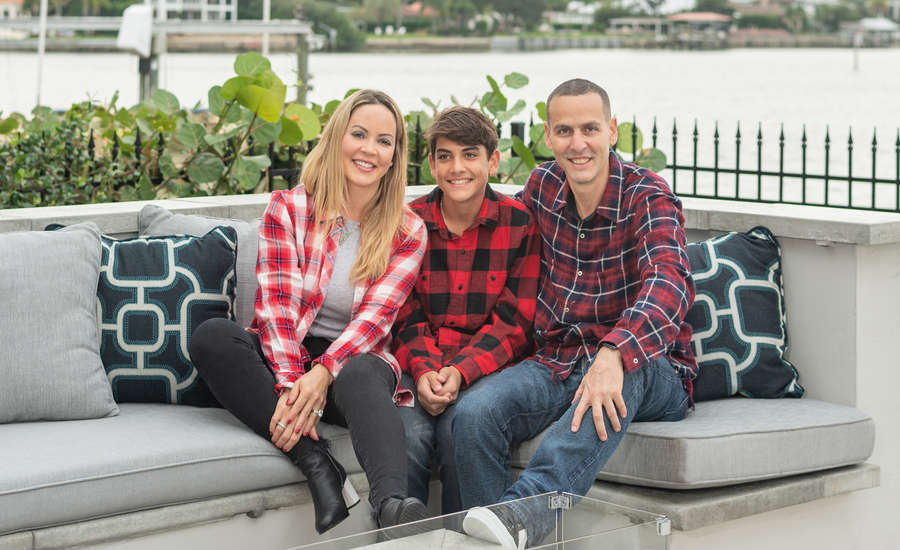
Kids & Divorce: From Their Own Mouth – Part 1
Our Happy Divorce Thursday, August 6, 2020
If you’re a parent, then you aren’t the only one going through a divorce, your kids are too. On this week’s livestream, Ben, Nikki, Susan Guthrie and Gabrielle Hartley welcomed special guest and OHD family member, Asher Heldfond, to discuss his experience during Ben and Nikki’s divorce and the impact it left on his life.
At the start of their divorce, Ben and Nikki made an agreement to always do what was best for Asher. Because of how young their son was, Ben and Nikki had to make sure his needs and wants were met. Asher got the chance to share his perspective through a chapter he wrote in Our Happy Divorce, offering a fresh look at what children could be feeling mentally and emotionally as they experience the process. While everyone goes through different situations, here are a few other things your kids may be dealing with during your divorce:
Living in two different houses can cause a disconnect. A common problem is that there are different rules in different houses. This could be something as small as where you put your shoes or how much time the kids are allowed on electronics. Being able to communicate with your co-parent to create a similar process in each home can make a world of difference.
The schedule needs to work for your kids too. When Ben and Nikki originally split their time with Asher, he would spend one week at Ben’s and one week at Nikki’s. But this didn’t work for Asher. He felt like he was away from the other parent for too long and emotionally taxing, especially as a four-year-old. Make sure you’re aware of your child’s behavior and ask them how you can make things easier.
People will ask your child questions about your divorce. In Asher’s experience, it typically came from the parents who hadn’t been divorced. It can be anything from what it’s like going back and forth, how their parents get along, and about the relationships each person has with one other. Let your kids know this can happen and it’s okay to answer or tell them they don’t have to.
It doesn’t totally suck. At least, it doesn’t have to. Asher made a point that even in something like divorce, good can come out of it. He gained two supportive and loving step-parents and a brother and sister he loves dearly. Divorce doesn’t have to be all bad, it all depends on how you handle it.
Don’t forget to follow us on all of our social channels: Facebook, Instagram, Twitter, and LinkedIn. If you’d like to join our private Facebook community, please visit the Our Happy Divorce Facebook Group.
Discover more about Susan Guthrie and The Divorce and Beyond Podcast on Facebook and Instagram, or at DivorceandBeyond.org. Listen to the Divorce and Beyond Podcast here: divorceandbeyond.podbean.com
To learn more about Gabrielle Hartley, check out her Facebook and Instagram or visit her website GabrielleHartley.com. To learn more about her book, visit GabrielleHartley.com/better-apart-the-book/.
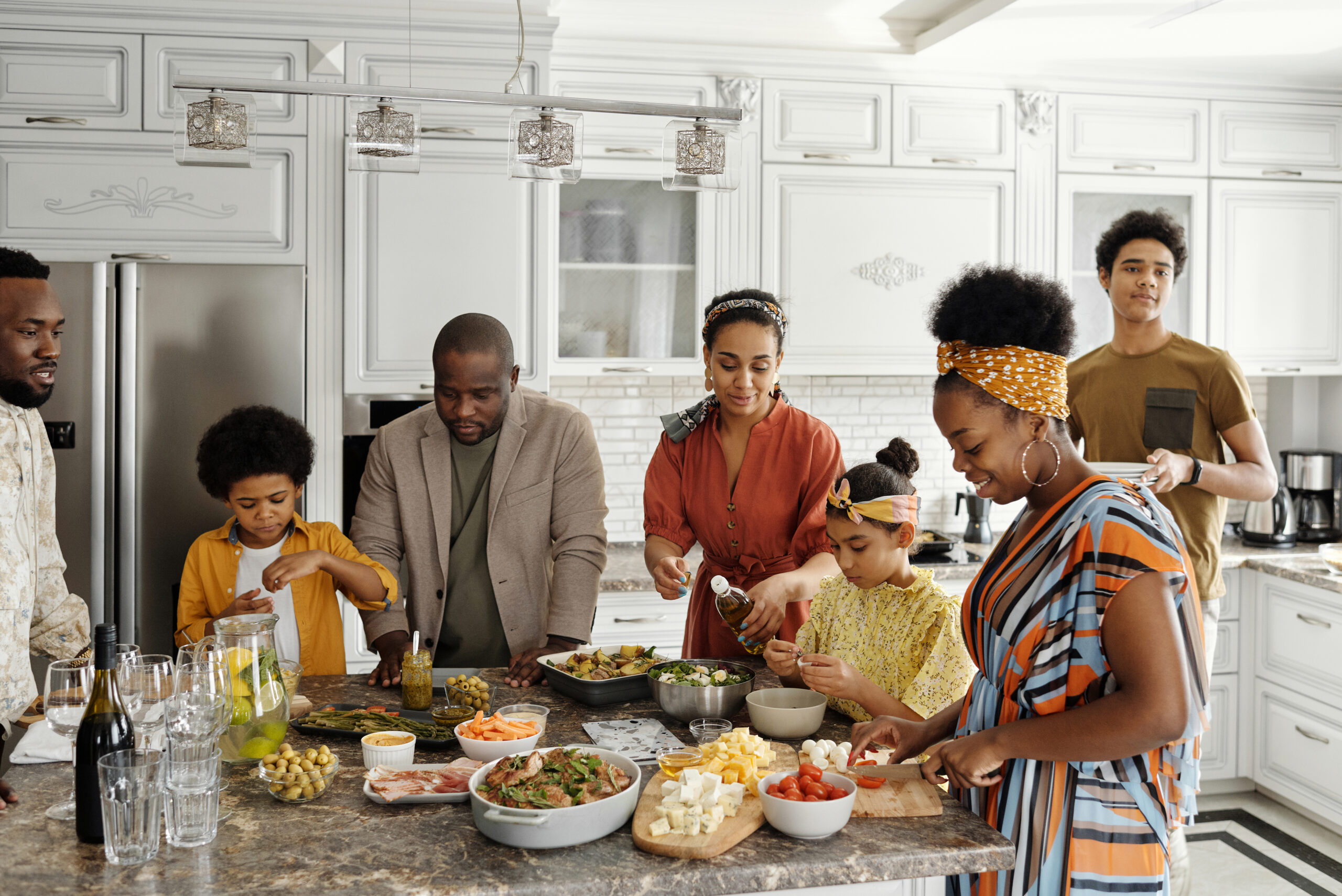
The Past, Present & Future of Divorce
Our Happy Divorce Tuesday, July 21, 2020
Ben, Nikki, Susan, and Kate welcomed Gabrielle Hartley to discuss the future of divorce on their latest livestream. Hartley is the founder and owner of Better Apart, which provides divorce coaching, mediation, and legal services. She also wrote Better Apart, which is a comprehensive guide on fostering a positive divorce and received rave reviews.
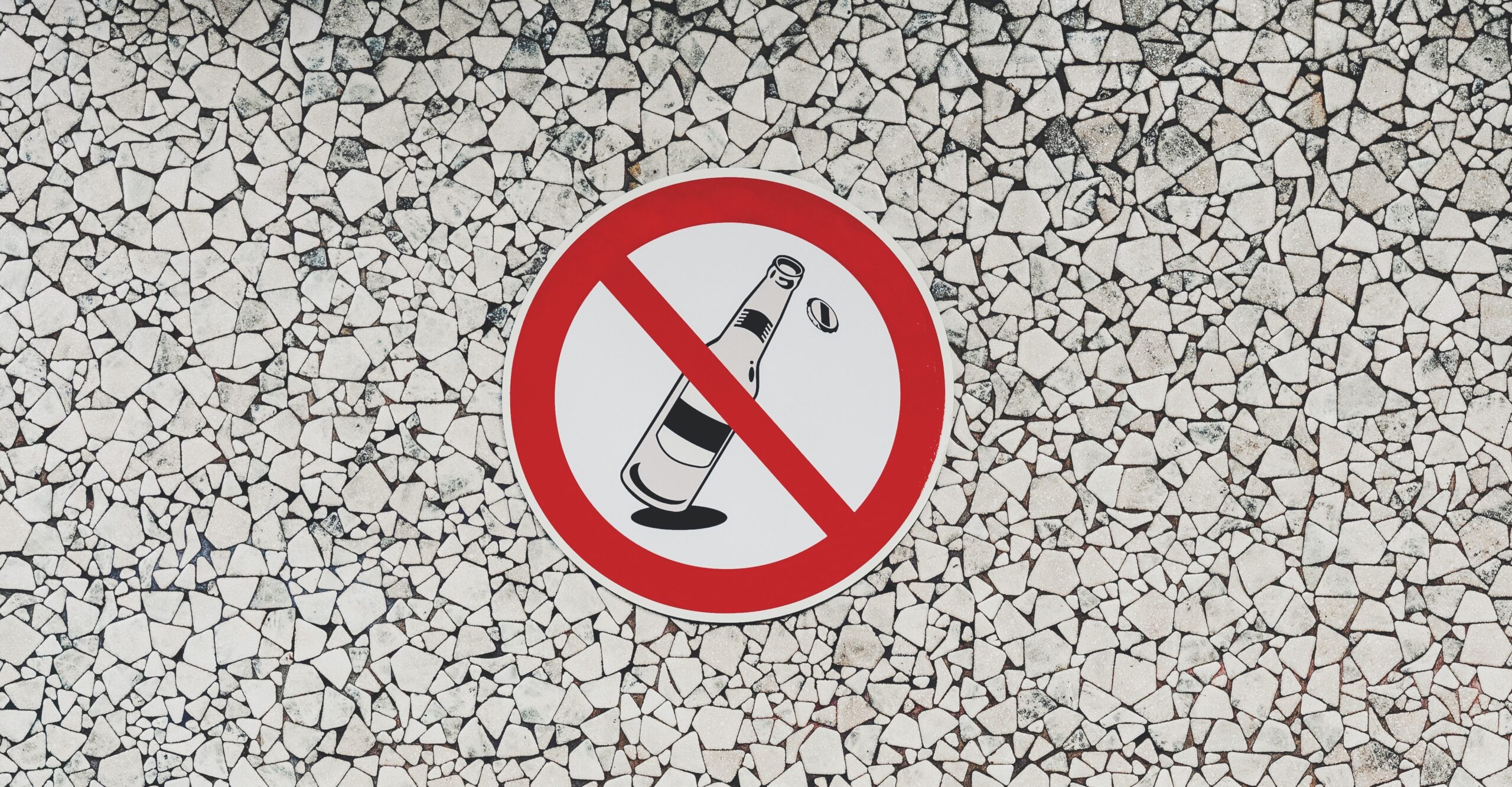
Drugs, Alcohol, and Divorce
Our Happy Divorce Tuesday, July 14, 2020
Millions of people struggle with drug and alcohol addiction in the United States. Addiction has loads of negative effects on a person’s life. It also affects their family. So what happens when you mix drugs, alcohol, and divorce? Ben, Nikki, Susan, and Kate brought in Dr. Elizabeth Cohen, a clinical psychologist with over 15 years of experience and one of NYC’s experts in Cognitive Behavioral Theory, to discuss just that in a recent livestream.
Substance abuse and how it affects divorce hits close to home for Ben and Dr. Cohen. When Ben and Nikki filed for divorce, Ben was 13 years sober. Dr. Cohen was formerly married to an alcoholic whose addiction heavily affected their marriage and divorce. There is no doubt that there is a psychological element to addiction, but there are a lot of hurdles and misconceptions people wouldn’t expect when dealing with addiction.
(more…)
Dating After Divorce
Our Happy Divorce Tuesday, July 7, 2020
Making the choice to start dating again after your divorce can be tricky, emotional, and especially difficult if there are children involved. Ben, Nikki, Susan, and Kate were happy to have Bela Gandhi, dating expert and founder of the Smart Dating Academy, on their recent livestream to talk about the transition from divorce to dating.
(more…)

How to Handle the Beginning of Your Divorce the Right Way
Our Happy Divorce Tuesday, June 30, 2020
As the country opens, a lot of experts are saying the amount of divorce rates are going to increase. We hope that is not the case, but regardless, divorce is still going to be around. The first couple of things Ben and Nikki did in the beginning of their divorce were so important. Unfortunately, the actions they took in the beginning were filled with resentment, anger, fear and every other negative thing you can imagine. We want to make sure that you have the tools you need to not make the mistakes Ben and Nikki did in the beginning. If they can do it, so can you.
We brought back our friends Kate Anthony and Susan Guthrie to a recent livestream where Ben and Nikki discussed how to handle the beginning of your divorce the right way. Here are some major takeaways:
- It takes a lot of work. After your divorce, there is a lot of personal work you have to do before you can ever come to forgive your ex. You have to forgive yourself first. It’s so important to take some time apart, and truly work on finding yourself again after your divorce. This will only set you up to do what’s best for your child and ultimately coparent with your ex in a happier and healthier way.
- Say I’m sorry. A sorry goes a long way, but it’s got to have meaning behind it. After you’ve taken time to resolve your ego and forgive yourself, it’s time to forgive your ex.
- Trust the process. As Kate always says, “you’re making the most important decision of your life during the most emotional time in your life.” If you try and do both of those things together, you’re setting yourself up for failure. Process your emotions, and it’s okay to take your time.
- Support your children. Divorce is weird for everyone. It’s extremely hard to explain your divorce to your kids, especially if a new partner is in the mix. Sometimes, you have to swallow the hard pills to put on a happy face for your child.
To listen to all of our full livestream recordings, visit our Youtube page.
Don’t forget to follow us on all of our social channels: Facebook, Instagram, Twitter, and LinkedIn. If you’d like to join our private Facebook community, please visit the Our Happy Divorce Facebook Group.
To learn more about Kate Anthony and The Divorce Survival Guide, visit her on Facebook and Instagram or visit KateAnthony.com. Listen to her podcast at: kateanthony.com/podcast-1
Discover more about Susan Guthrie and The Divorce and Beyond Podcast on Facebook and Instagram or at DivorceandBeyond.org. Listen to the Divorce and Beyond Podcast here: divorceandbeyond.podbean.com
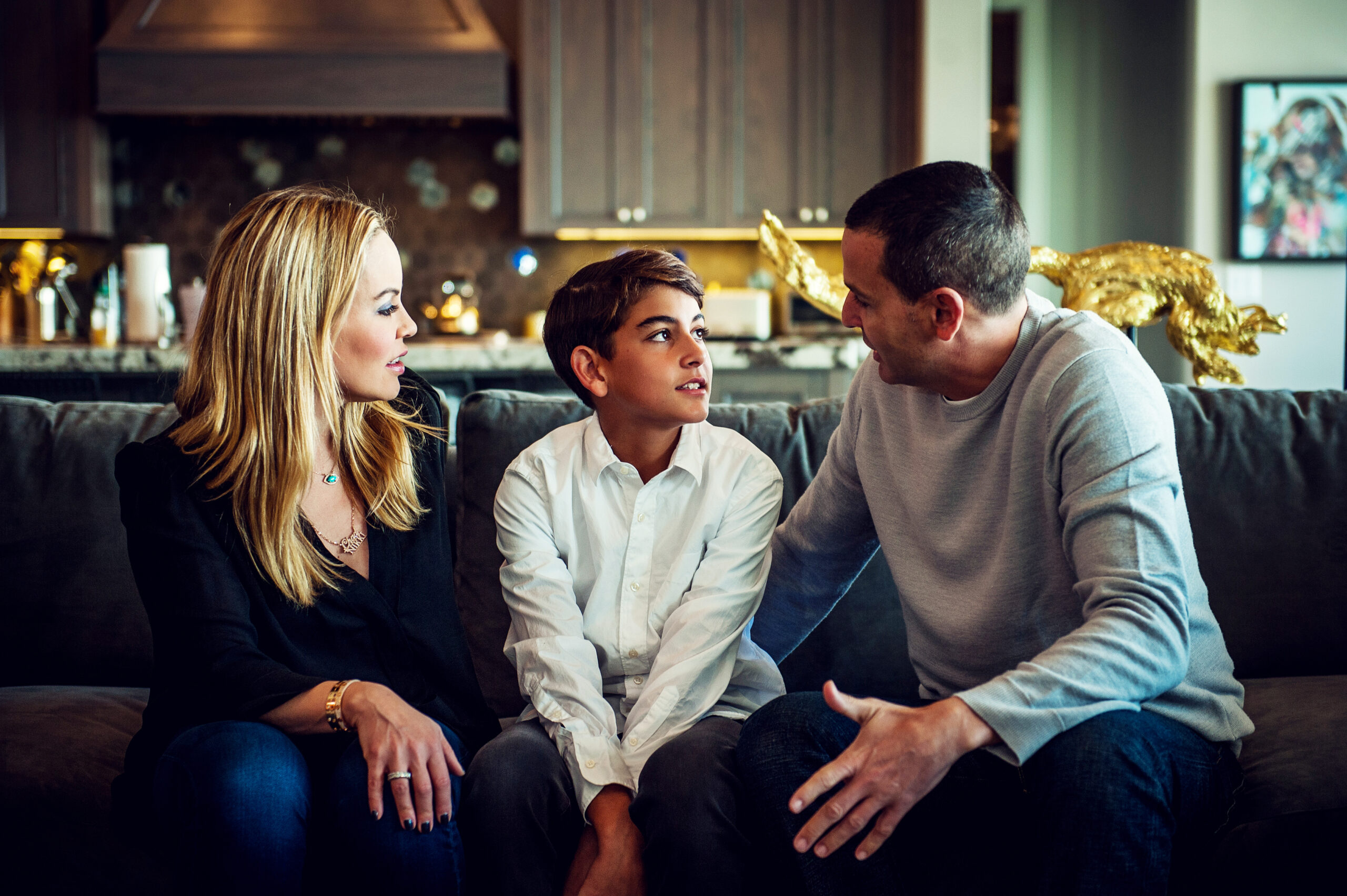
Men and Divorce: What’s Holding Us Back
Our Happy Divorce Tuesday, June 23, 2020
In a recent livestream, Ben and Nikki talked to Kate Anthony and Susan Guthrie about the cultural implications of Men and Divorce. It’s no secret that men stereotypically have a harder time talking about their feelings and dealing with the emotional side of divorce. Women are also more likely to file a divorce, with 75% of divorces being filed by women. It can be argued that this is due to the women being the “doers” in the relationship, but some have more bitter opinions on why that statistic exists. Nonetheless, there seems to be a strong cultural divide between how men and women are supposed to differentiate in how they handle their divorce, emotionally and logistically.
If there’s anyone that’s not the norm, it’s Ben. Unique and not afraid to tell it like it is, Ben feels like this idea that men can’t talk about their feelings and set aside their ego is what’s holding more people back from having the happy divorce that he and Nikki have. In this open letter, Ben talks about what he did in his situation to find a healthier approach, which ultimately led to the Our Happy Divorce family that we have today.
From Ben:
I’m not a therapist. I don’t know why men don’t talk about their feelings. Even before my divorce, I had a hard time talking about my feelings, and that is because I’ve been socialized to be a “man,” which to me meant that I am independent and strong. Whenever I feel vulnerable or get a feeling like my initial reaction was incorrect, I either get mad or withdraw in my “cave.” In the beginning of my divorce with Nikki, I did just that. I was so twisted up in the emotion of anger, resentment, and fear that I reacted in a negative way that had many implications. We could have probably gotten to a happy divorce sooner if I would have just realized that we both did things that resulted in our divorce and that we needed some time to heal.
I also told myself that I could handle it and that it isn’t even that big of a deal. What a mistake that was. This was a HUGE deal, and one that would be the hardest time of my life, but also the best thing that could have happened for me, Nikki, and Asher. Because, after all is said and done, Nikki and I both have found the people that we’re supposed to be with and we have one big amazing family. This is something I never could have imagined at the beginning of our divorce.
I believe that if men allow their ego to hold them back from finding their happy divorce, they’re ultimately hurting themselves and their children. Nothing gets in the way of a healthy relationship — both your relationship to yourself and your relationships with other people — like an ego. Until you let that go and let the notion that you have to be strong, unemotional, and independent, you will never be able to find a happy divorce.
There’s also a cultural vein that says we have to paint our ex out to be the villain, especially with men that I’ve encountered in the divorce community. This is simply still your ego putting your ex down so that it can falsely build you up and make you feel better. However, the person that suffers as a result of that is your child. Painting the mother of your child in a bad light will not go unnoticed, and that can be extremely hard and confusing on your kids.
At the end of our marriage, and the beginning of the divorce process, I told myself that it was all Nikki’s fault. She was the “villain” and if she had only done this or if she had only done that, our marriage would not have fallen apart. This finger-pointing and laying the blame at Nikki’s feet enabled me to justify my own behaviors and actions. It wasn’t until I was willing to accept that it takes two to make a marriage work and two to ruin it that we could actually move forward in a positive way. I had to be honest with myself and find my shortcomings and defects of character to really realize all factors that contributed to the ending of our marriage.
Through my experience on this planet, I have had the worst outcomes, not only in relationships but in every aspect of my life, when I let my ego get in the way. I would love men to be okay with letting go of their ego, getting honest with themselves and being okay with being more vulnerable. That uncomfortable feeling is where growth happens, not just individually, but as a society as a whole.
To listen to all of our full livestream recordings, visit our Youtube page.
If you have any questions for us or Ben directly, we are always open to hear your story and help in any way we can on Facebook, Instagram, and Twitter. We also have a private community at the Our Happy Divorce Facebook Group where you can talk with people going through the same situation you are right now.